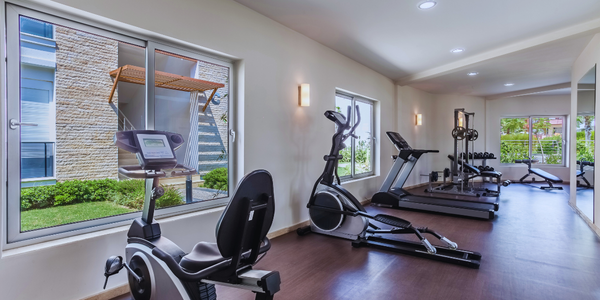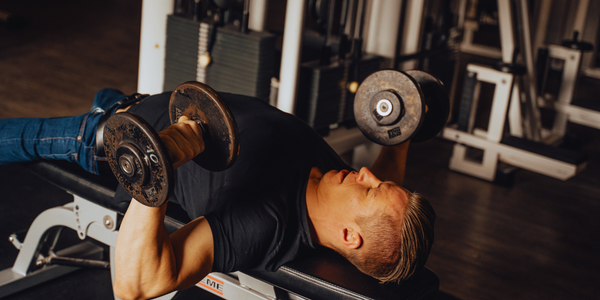Guide to Men's Wellness: Tips for Achieving Holistic Health

Balancing your mental, physical, and emotional well-being can seem daunting in today's fast-paced world. However, it's crucial for leading a fulfilling and happy life.
Importance of holistic health for men
Holistic health is a comprehensive approach to life that emphasizes the connection of mind, body, and spirit. For men, adopting a holistic health mindset goes beyond merely avoiding illness—emphasizing optimal health.
A holistic approach encourages men to consider not just the physical aspects of health but also the emotional and psychological sides. This balanced state of well-being can lead to improved life satisfaction, higher productivity, and even a longer life expectancy.
As societal norms evolve, the importance of holistic health for men becomes even more pronounced, breaking down outdated stereotypes about masculinity and encouraging men to strive for a healthy and fulfilled life openly.
Factors affecting men's wellness
Various factors can influence a man's health, from diet and exercise to stress levels and social connections.
Genetics and environment also play critical roles. For example, men are often conditioned to prioritize work and ignore signs of stress and fatigue, which can detrimentally impact their long-term health.
Moreover, societal expectations can sometimes prevent men from seeking help or expressing emotional difficulties, which can exacerbate issues like depression and anxiety.
Acknowledging and addressing these factors is key to improving overall health and maintaining a balanced life.
Strategies to reduce stress and anxiety
In today’s fast-paced world, stress and anxiety can feel like constant companions. However, there are effective strategies that men can use to manage these feelings. Regular physical activity is one of the most cited remedies.
Exercise improves physical health and releases endorphins, which are natural mood lifters. Mindfulness and meditation have also risen in popularity due to their proven benefits in stress reduction.
Additionally, men should not underestimate the power of a consistent sleep schedule, which can greatly improve mood and decrease anxiety.
Building a support network of friends and family who understand and support you is equally important.
Here are a few methods to get started:
- Set aside time each day for activities that help you relax.
- Try deep breathing exercises or meditation to maintain calm.
- Maintain regular exercise to help reduce stress.
- Ensure a healthy sleep routine to restore body and mind.
Importance of self-care practices for mental wellbeing
Self-care is often seen as a luxury, but for optimal mental health, it's a necessity, especially for men.
Self-care practices can range from simple actions like reading a book or taking a walk in nature to more structured approaches such as speaking to a therapist or maintaining a hobby.
These activities are crucial not just for destressing but also for building resilience against mental health problems.
Men should be encouraged to view self-care as a component of their strength, not a sign of weakness. Identifying what forms of self-care are most effective for you can be a journey of self-discovery that benefits all areas of your life.
Here are some self-care practices:
- Engage in regular physical activities that you enjoy.
- Develop a hobby that relaxes you, whether gardening, woodworking, or playing music.
- Keep a journal to express thoughts and emotions, aiding in mental clarity.
- Stay connected with friends and loved ones to enhance your emotional support system.
By integrating these mental health and holistic wellness practices into daily life, men can achieve greater harmony and wellness, leading to a healthier, happier life.
Exercise routines for optimal health
An ideal exercise routine for men should include a mix of cardiovascular activities, strength training, and flexibility exercises.
Cardiovascular exercises like running, cycling, or swimming help improve heart health and endurance.
Strength training, such as using weights or bodyweight exercises such as push-ups and squats, helps build muscle mass and enhances metabolic rate.
Flexibility exercises like yoga or basic stretching can prevent injuries and improve body movement.
Depending on personal capabilities and health conditions, aim for at least 150 minutes of moderate-intensity or 75 minutes of high-intensity exercise per week.
Remember, consistency is more beneficial than intensity when starting out.
Nutritional tips for boosting energy and vitality
Nutrition plays a vital role in energy levels and overall vitality.
Here are some tips specifically geared toward enhancing men's nutritional health:
- Incorporate a variety of proteins from both animal and plant sources into your diet to improve muscle health and energy levels.
- Eat plenty of fruits and vegetables to ensure a good intake of vitamins and minerals crucial for metabolic and immune system function.
- Include whole grains like oats, brown rice, and barley in your meals to maintain energy levels throughout the day due to their low glycemic index.
- Favor healthy fats from sources like avocados, nuts, seeds, and olive oil, essential for heart health and cognitive function.
- Stay hydrated! Water is essential for energy, digestion, and cellular function.
Importance of regular check-ups and screenings
Regular medical check-ups and screenings are fundamental in catching potential health issues before they become serious.
Men should regularly consult with healthcare providers to monitor their health numbers, including cholesterol, blood pressure, and blood sugar levels.
Screenings such as colonoscopies and prostate exams are critical as men age, while younger men might focus more on managing risk factors such as obesity and stress.
Early detection through these screenings often leads to more effective treatments.
Benefits of natural remedies in men's wellness
Natural remedies often offer fewer side effects than conventional medicine and can be a gentle way to manage and prevent common health issues.
These remedies can also encourage men to be more in tune with their bodies and the natural rhythms of life, promoting a more holistic approach to health.
Key benefits include improved stress management, better sleep, enhanced immunity, and support for mental health.
Top natural remedies for common men's health issues
Here are some effective natural remedies targeted toward typical men’s health concerns:
- Saw Palmetto: Often used to support prostate health and help manage benign prostatic hyperplasia (BPH) symptoms.
- Omega-3 Fatty Acids: These are crucial for heart health, reducing inflammation, and supporting brain function. Found in fish oil and flaxseeds.
- Ginger and Turmeric: Both are powerful anti-inflammatories, making them excellent for joint health and overall inflammation reduction.
- Magnesium: This mineral promotes muscle relaxation and is essential for heart health. Magnesium can be taken as a supplement or found in foods like almonds, spinach, and black beans.
- St. John’s Wort: Known to aid in the management of depression and anxiety, this herb can be an adjunct to traditional therapy.
Always consult a healthcare provider before starting any new treatment, especially if you are currently on other medications.
Integrating these natural remedies into a wellness regime can significantly improve overall health and quality of life.
Holistic Approaches to Men's Wellness

Image courtesy: Unsplash
Integrating mind-body practices for overall health
Holistic health emphasizes the connection between the mind, body, and spirit, working harmoniously to achieve optimal health.
Integrating mind-body practices can lead to significant improvements in physical and mental well-being for men.
Techniques such as yoga and meditation are beneficial for reducing stress and enhancing flexibility and cardiovascular health.
Similarly, tai chi, a gentle form of martial arts, focuses on breath control and slow movements, making it ideal for all ages and fitness levels.
Regularly practicing these activities can help maintain balance, decrease anxiety, and increase stamina.
Another effective mind-body practice is mindfulness. By paying attention to the present moment without judgment, mindfulness can significantly reduce symptoms of anxiety and depression.
Simple activities like mindful walking or journaling can also be incorporated into daily routines to improve mental clarity and focus.
These practices foster a better connection with oneself and enhance emotional resilience.
Embracing a holistic lifestyle for long-term wellbeing
Adopting a holistic lifestyle involves more than occasional mind-body practices; it includes making sustainable lifestyle changes promoting long-term health.
This includes diet, exercise, sleep, and social interactions.
To start, a nutrient-rich diet that focuses on whole foods such as fruits, vegetables, lean proteins, and whole grains is essential.
Avoiding processed foods and reducing sugar intake can prevent many chronic diseases.
Regular physical activity is another cornerstone of a holistic lifestyle. This doesn't necessarily mean intense gym sessions.
Activities like walking, cycling, or swimming can be equally effective. Combining these with strength training and flexibility exercises ensures a well-rounded fitness regimen.
Quality sleep cannot be overlooked, as it is crucial for mental and physical health. Aiming for 7-9 hours of good-quality sleep per night and maintaining a regular sleep schedule helps regulate hormones and manage stress.
Finally, building strong, healthy social connections contributes to emotional well-being. Engaging in community activities or spending quality time with family and friends can provide emotional support and reduce feelings of loneliness and depression.
By embracing these practices, men can achieve a holistic balance that improves their health in the short term and secures their well-being for years to come.
Conclusion
Achieving holistic health is a journey, not a destination. By integrating the tips discussed throughout this guide—from nourishing your body with natural remedies and maintaining physical well-being to fostering resilient mental health—you're setting yourself on a healthier, fuller life. Remember, consistency is vital.
The best results come not from temporary changes but from lifelong habits. So, start small, stay committed, and watch as small steps significantly transform your overall wellness.
ActiveMan — Make Your Move
The Modern Guide to Men’s Health, Fitness & Lifestyle.





